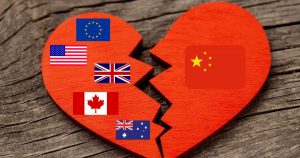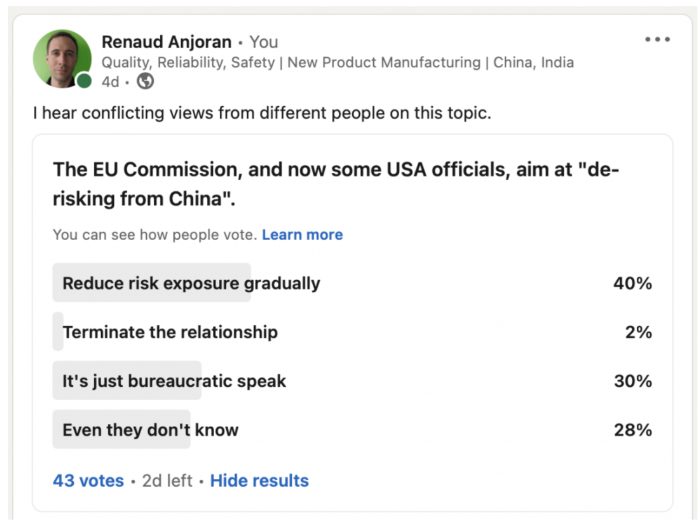In February, after visiting some of our clients in North America, I wrote How USA & Canada SME Importers Feel about China in early 2023, in which I described three categories of importers affected by the trend of decoupling from China:
- Those looking for an opportunity to reduce their exposure to China
- Those trying to ignore current politics, reasoning that a Russia-style ‘decoupling’ scenario would be way too painful and is not realistic
- Those moving out of China because their suppliers there were just delivering very bad performance and they wanted to take their chances elsewhere
Since then, US government officials have started to talk about “de-risking” rather than “decoupling from China”.
But is there a difference?
The difference between ‘decoupling from China’ and ‘de-risking’
In The Economist‘s view, “de-risking” just means reducing exposure to the China risk over time, and it is not as radical as “decoupling”.
On the other hand, the term “de-risking” is sometimes used in a pretty radical manner. That’s what banks say when they terminate a relationship with a customer as part of their risk management approach.
So, I asked my community on Linkedin to give me their take on this and I got these answers:
I suggested “de-risking” looks like a murky buzzword that was picked precisely because it can mean different things. And South China Morning Post senior correspondent Finbarr Bermingham concurred:
I think its vagueness is why EU member states have been so comfortable getting on board with it. Similar to the triptych, it leaves enough ambiguity to write your own policy on top of it
Not everyone felt it left much hope for the USA/UK/Australia-China and the EU-China relationships, though. Clive Greenwood, a compliance consultant who spends a lot of time mitigating risks for his clients, was a bit more radical:
reduction of risk = remove risk , leave
Are businesses making moves now?
HSBC is another candidate for a split at some point in the future… which is probably harder for a bank than for a VC firm that carefully compartmentalized the different funds from the start.


